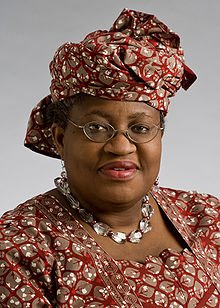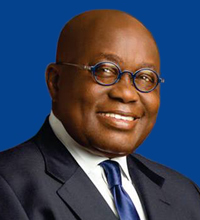The Russian - Africa summit: A Development Partnership Or An Alliance?
Amidst the ongoing war between Russia and Ukraine, Russia has somewhat succeeded in organizing a second Russia-Africa summit in St Petersburg. The summit which many have questioned its motives given its timing, seeks to redefine and shape the Africa-Russia relationship in ways only seen during the cold war era, as Russia’s current conflict with the West deepens.
This somehow affirms the assertion that the primary motivation of the current summit is aimed at winning African countries over in this new conflict prone era, rather than the claimed strengthening of economic, development, cultural and security ties.
The Russia-Africa Summit, held for the first time in October 2019, and was aimed at strengthening economic, political, and cultural ties between Russia and African nations. Many of the promises made during the first summit are still to be realised, notably the promised doubling of trade with Africa to $40bln. As of 2022, the total trade stood at $18bln. It would be fair to state that the covid era might have had some tremendous impact on this figure, hence the next few years will be crucial in determining the true motives of this relation.
In the 60s, Russia delineated a lot of interest in Africa and went as far as creating a University to train personnel from most newly independent African nations. It even named the University Patrice Lumumba University, in honour of the heroic African nationalist and pan-Africanist, Patrice Lumumba who was executed in January 1961. This was all part of its cold war diplomacy, because as soon as Russia started normalizing its relationship with the West, Africa became less and less of a priority. By 1992 (post-cold war era) Russia had renamed the University to the Peoples' Friendship University of Russia, following a decision taken by the Russian government, and had very little and insignificant conventional trade with Africa. Shortly after the Russia/Ukraine war started, Russia’s Minister of Education and Science signed a decree to return the name of Patrice Lumumba to the university in March 2023.
However, as it is with any major international event of this nature, there are expectations, both potential benefits and drawbacks:
Potential Benefits
- Diversification of Partnerships: Everything being equal, the summit provides an opportunity for African countries to diversify their partnerships beyond traditional allies. Over the years since independence, most African countries have maintained ties along colonial lines, with the former colonizers having much influence in almost every aspect of the former colony, and somehow acted as gate keepers through whom all other partners had to go. Engaging directly with Russia, as it was with China can open up new avenues for trade, investment, and technology transfer, potentially reducing Africa's overreliance on a few major trading partners.
- Access to Russian Expertise and Technology: Russia possesses expertise in areas such as energy, mining, and defense, which could be beneficial for Africa's development, only if both sides are committed as partners. Collaboration with Russian companies and institutions may facilitate technology transfer and skill development in these sectors, provided Russia is engaging in good faith, and not just playing the old cold war era diplomacy. The countries engaging with Russia must remain vigilant, and have an effective mechanism in place to follow up on all promises made.
- Development Finance and Investment: Provided the current war does not become very costly for Russia, the summit may lead to increased Russian investments in African infrastructure and development projects. Russia's participation in these areas could help address the continent's massive infrastructure deficit. There is however, little or no data to suggest the summit will lead to increase investment, and unlike the Chinese, there’s no track record of huge Russian infrastructure projects across the continent.
- Counterbalance to Western Influence: Some African countries view engagement with Russia as a way to balance out the dominance of Western powers in their affairs. By diversifying their partnerships, African nations can potentially gain more leverage and see a shift in international negotiations. This potential new shift was witnessed when a group of African leaders led by the South African and Egyptian presidents Cyril Ramaphosa and Abdel El-Sisi opted to mediate for peace between Russia and Ukraine. Here Africa was not just being seen as conflict infested continent, but a potential mediator in a conflict on European soil. The attempt was seen by many as having no credence, due to the leaders inability to resolve most of the conflicts on the African continent.
- Security Guarantees: Most African countries today are faced with both internal and external threats, and countries in the Sahel region are seen as facing existential threats from Isis and other terrorist groups, whom they believe years of reliance on the West has only worsen the situation. That is the narrative. You also have autocratic nations who for one reason or the other have ran out of favour with the West, and therefore feel threatened, thus turning to Russia for security guarantees is their only best option. In recent years, the Sahel and Central African regions have seen the prominence of Russian mercenaries, notably the Wagner para-military group playing key roles in the security structure. The group, which has featured repeatedly in numerous human rights reports for alleged human rights abuses, is suspected or having strong ties and enjoying support from of the kremlin. Hence Wagner is an extension of the Russian army on the African continent. The recent rift between the Russian government and the Wagner Group under Yevgeny Prigozhin should serve as a warning to any African country engaging the services of Wagner.
Potential Drawbacks for Africa:
- Geopolitical Considerations: Some skeptics argue that Russia's engagement in Africa is driven by geopolitical interests rather than genuine development concerns. African countries need to carefully assess the intentions behind Russian investments and ensure that they align with their own long-term development goals.
- Debt Concerns: Russia is indicating a major cancellation of debts owed by African nations. Should this materialize, and without attached conditions, it could lead to additional borrowing. Increased borrowing from Russia could potentially expose African countries to debt-related risks. It is essential for African nations to negotiate favorable terms and ensure that loans are used responsibly and effectively.
- Human Rights and Governance Issues: Russia has faced criticism for its record on human rights and governance. African countries should be cautious in their engagements and ensure that cooperation does not undermine their efforts to uphold democratic principles and protect human rights.
- Competition with Other Partnerships: Under normal circumstances, engaging with Russia should complement, not replace, existing partnerships. African countries should avoid getting entangled in geopolitical rivalries and strive for mutually beneficial relationships with all partners, else Africa could end up being a battlefield for proxy conflicts between Russia and West. African leaders must deal with this very diligently.
- Lack of Transparency: Concerns have been raised about the transparency of some Russian deals in Africa. African governments should insist on transparent and accountable business practices to avoid potential corruption and ensure that the benefits of cooperation reach their citizens.
In summary, the Russian-Africa Summit presents both opportunities and challenges for the continent. African nations should carefully consider their engagement with Russia, ensuring that it aligns with their development priorities and contributes positively to the well-being of their citizens. Transparency, responsible borrowing, and clear alignment with development goals are essential for maximizing the benefits while mitigating potential risks. The urgent desire to secure the flow of grain in the short term should not be the core of what defines the Russia - Africa relationship. How Russia emerges from the current conflict with Ukraine will be crucial in determining its future relationship with Africa.
Contact: acha [at]africanpolicyforum.org
The views represented herein are those of the author(s) and do not necessarily reflect the views of the Africa Policy Forum



